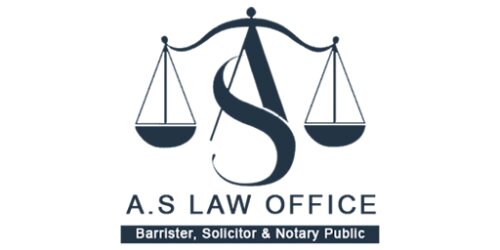Best Housing, Construction & Development Lawyers in Winnipeg
Share your needs with us, get contacted by law firms.
Free. Takes 2 min.
Free Guide to Hiring a Real Estate Lawyer
List of the best lawyers in Winnipeg, Canada
About Housing, Construction & Development Law in Winnipeg, Canada
Housing, Construction & Development law in Winnipeg, Canada, encompasses a broad range of legal issues pertaining to residential and commercial buildings, urban development, zoning, and land use. These laws ensure that construction projects adhere to safety regulations, environmental standards, and municipal building codes. In Winnipeg, a growing city with a dynamic real estate market, these laws are essential for maintaining urban growth, protecting the heritage, and ensuring sustainable development aligned with both provincial and federal regulations.
Why You May Need a Lawyer
Individuals and businesses engaged in housing, construction, and development projects in Winnipeg may need legal assistance in various scenarios, including:
- Disputes over property boundaries or ownership.
- Challenges related to building permits, zoning, or land use regulations.
- Construction defects or contractual disputes with builders or contractors.
- Handling tenant-landlord conflicts, especially in rental properties.
- Compliance with health and safety standards on construction sites.
- Environmental assessments and dealing with contaminated land issues.
- Drafting and reviewing contracts for development or purchase agreements.
Local Laws Overview
Winnipeg's housing, construction, and development laws are influenced by both provincial and municipal regulations. Key aspects include:
- Manitoba Building Code: This regulates the construction, alteration, and maintenance of buildings in Manitoba, ensuring safety and health regulations are met.
- City of Winnipeg Zoning By-Laws: These laws dictate land use, dividing the city into zones (residential, commercial, industrial) which affect what can be built and where.
- Renting Authority: Governed by the Residential Tenancies Branch, this law manages tenant-landlord relationships, rent controls, and tenant rights.
- Environmental Laws: Federal and provincial laws require environmental assessments for certain developments to protect natural resources.
Frequently Asked Questions
What permits do I need for a home renovation in Winnipeg?
You typically need a building permit for structural changes, electrical work, or plumbing updates. It's best to consult Winnipeg's Planning, Property & Development Department for specific requirements.
Can property zoning be changed in Winnipeg?
Yes, but it involves a formal application process with the City of Winnipeg, including public hearings and compliance with city planning policies.
How are tenant rights protected in Winnipeg?
The Residential Tenancies Act in Manitoba outlines tenant rights, including issues like rent increases, evictions, and maintenance responsibilities.
What is the process for resolving a construction dispute in Winnipeg?
Disputes can be resolved through negotiation, mediation, arbitration, or litigation, depending on the contract terms and the nature of the disagreement.
Are there specific laws for heritage buildings in Winnipeg?
Yes, there are heritage by-laws that protect historic sites, requiring special permits for alterations to preserve architectural integrity.
How does the Manitoba Building Code impact my construction project?
The code sets minimum standards for construction quality and safety, from structural integrity to fire safety measures, ensuring well-built and secure structures.
What should I do if there's a delay in my construction project?
Review your contract for terms regarding delays, communicate with all parties involved, and consider legal action if the delay causes financial harm or breaches the contract.
Can a landlord evict a tenant for any reason in Winnipeg?
No, there are specific legal grounds for eviction, such as non-payment of rent, lease violation, or the landlord needing to occupy the unit.
What role does the City of Winnipeg play in development approvals?
The City is involved in approving building permits, zoning applications, and ensuring developments meet local policies and by-laws.
Who enforces housing and construction laws in Winnipeg?
Laws are enforced by multiple bodies, including the City of Winnipeg, the Residential Tenancies Branch, and provincial regulatory agencies.
Additional Resources
For further assistance, consider these resources:
- City of Winnipeg, Planning, Property & Development Department: Provides information on permits, zoning, and development policies.
- Residential Tenancies Branch, Manitoba: Offers resources for tenants and landlords regarding rights and responsibilities.
- Manitoba Bar Association: A directory of legal professionals who specialize in construction and real estate law.
- Environmental Assessment and Licensing Branch, Manitoba: For guidance on the environmental regulations applicable to your project.
Next Steps
If you require legal assistance in Housing, Construction & Development, consider the following steps:
- Identify your specific legal issue and compile relevant documentation.
- Consult with a lawyer who specializes in housing or construction law; the Manitoba Bar Association can provide referrals.
- Engage with municipal departments early to understand regulatory requirements.
- Stay informed about local laws and updates that might impact your project.
- Consider mediation or alternative dispute resolution for conflicts to save time and resources.
Taking these steps can help you navigate the legal complexities of housing, construction, and development effectively in Winnipeg.
Lawzana helps you find the best lawyers and law firms in Winnipeg through a curated and pre-screened list of qualified legal professionals. Our platform offers rankings and detailed profiles of attorneys and law firms, allowing you to compare based on practice areas, including Housing, Construction & Development, experience, and client feedback.
Each profile includes a description of the firm's areas of practice, client reviews, team members and partners, year of establishment, spoken languages, office locations, contact information, social media presence, and any published articles or resources. Most firms on our platform speak English and are experienced in both local and international legal matters.
Get a quote from top-rated law firms in Winnipeg, Canada — quickly, securely, and without unnecessary hassle.
Disclaimer:
The information provided on this page is for general informational purposes only and does not constitute legal advice. While we strive to ensure the accuracy and relevance of the content, legal information may change over time, and interpretations of the law can vary. You should always consult with a qualified legal professional for advice specific to your situation.
We disclaim all liability for actions taken or not taken based on the content of this page. If you believe any information is incorrect or outdated, please contact us, and we will review and update it where appropriate.














